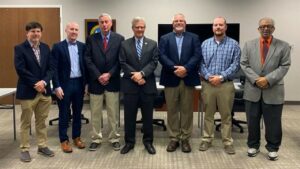Schools have always been vulnerable to reputation-challenging problems that may occur in a moment’s notice. Schools are among the most public-facing organizations, employing a lot of people in operations that encompass – besides education – childcare, security, transportation, food services, building services and more. And for good reason, schools are under intense public scrutiny.
The past three-plus years and the COVID-19 pandemic, though, challenged school leadership to an unprecedented degree.
And, driven in large part by social media, the adjustments and changes in response to the pandemic came amid one of the most tense, socially and politically charged atmospheres imaginable.
It’s little wonder that when schools seek help for communications we see a wide range of issues. But the situations we encounter all have one important factor in common. The school leadership team must talk about it. They can’t ignore it. It isn’t going away. And the people the schools care about the most – the teachers, staffers, parents and students – are waiting to hear what’s going to be done about this.
While each situation requires its own communications strategy, with tools and tactics tailored to that situation, there are some basic principles and best practices that apply.
Effective crisis communications: The best practices
First, you can’t communicate your way out of a challenge. You must act your way out. But you also need to communicate those actions in clear, concise language.
Second, follow the fundamentals of effective crisis communications. At Hennes Communications, we depend on our Damage Control Playbook and its five simple concepts:
- Tell the truth.
- Tell it first – if you don’t, someone else will.
- Tell it all – if you don’t, someone else will. We realize that sometimes, for very legitimate reasons, you can’t tell it “all.” Student privacy must be paramount, for example. And as we experienced in communicating about a pandemic, you also can’t know it “all.” Change will continue. Tell people that. One more important caveat: Don’t provide any information until you know it is true to the absolute best of your ability to know that in the heat of the moment. One of the most damaging errors, from a communications and reputation standpoint, is to have to walk back “facts” that you’ve shared with the public. As we saw with the Uvalde, Texas, school shooting, the result is extreme frustration and distrust on the part of your community.
- Tell it fast.
- Tell it to the people who matter most. Your teachers, staff, students and parents are eager to hear from you.
Third, “no comment” is no answer. Tempting as it may be, “no comment” equals a guilty plea in the court of public opinion. Because, after all, if you have a story to tell, why aren’t you telling it?
An insurance policy for your reputation: the crisis communications plan
Your greatest uninsured asset is the reputation you’ve spent years building. Build insurance for your reputation by preparing for the worst with a crisis communications plan.
Districts and schools are required to develop comprehensive emergency management plans meeting North Carolina law requirements. While communication with emergency services, staff, parents and other parties is a key part of these plans, districts also should consider the development of a comprehensive crisis communications plan.
At its essence, a crisis communications plan establishes who says what, who you’re saying it to, when and how.
When working with districts to develop a crisis communication plan, we place a great deal of emphasis on the “what” – messages for your most important audiences that have been approved by the superintendent, principals, legal, human resources, communications – by all the key players – for a variety of crisis scenarios.
We identify the crisis scenarios by conducting a vulnerability audit with schools. We gather in one room with the heads of different departments and disciplines that cut across the organization and ask, what keeps you up at night? What potential crisis are you worried about?
In an hour or so of brainstorming, the group usually comes up with 50 or 60 potential crises.
We rate which are most likely. From that most likely list, we choose the most potentially damaging – to your day-to-day operations and your reputation.
That usually yields about a dozen potential crises that are most likely to happen and most damaging.
Then, we write messages designed to talk about the crisis immediately, as it’s happening, with accompanying social media posts, particularly for Twitter and Facebook.
Having a crisis communications plan positions you to react quickly when the crisis hits because you don’t have time then to think about what you want to say and get your leadership team to approve it. Your school community is waiting to hear from you. These planned, approved messages get your voice out there in those crucial early cycles of a crisis. They establish you’re working on the problem. And we’ve found they are crucial in protecting and maintaining your reputation.
The plan also establishes a crisis communications team, with complete contact info – including mobile phones. With backups for the primary contacts, because the crisis will hit while your crisis team leader is on vacation. And a clear delegation of responsibilities for each team member.
The plan identifies your key members and how you’ll reach them, from phone calls, to email, to social media. Protocols and procedures are included for activating the crisis communications team, with immediate first, second and third steps.
And the plan delves into social media, with passwords for your sites listed, instructions for use of social media, guidelines for monitoring, etc.
Want to survive a crisis? Have a plan for doing so before the crisis.
Thom Fladung is managing partner at Hennes Communications, the preferred provider of crisis management services to the Arizona School Boards Association, Florida School Boards Association, Indiana School Boards Association, North Carolina School Boards Association and Ohio School Boards Association. For more information, contact Thom at fladung@crisiscommunications.com or 216-213-5196.











